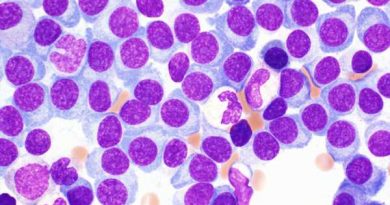New Study Indicates Low-Carb Diets Burn More Calories And Helps Maintain Weight Loss
The low-carb diet might actually help you burn more calories and maintain weight loss.
For many, losing weight can often be the easy part. However, maintaining that weight loss is the neverending battle. But now, new research suggests the low-carb diet is your best bet in order to maintain weight loss after that initial loss.
The low-carb diet is currently the go-to diet when it comes to rapid weight loss. It works on the premise that users cut down drastically on their carb intake as well as substantially increasing their protein and fat intake. By eating more fat and protein and cutting out most of your carbs, the body then converts its energy use from carbs to fat. People who love this diet swear that this form of energy use assists in winning the weight loss war but help with those hunger pangs that quite often see dieters throw in the rag and resume their normal eating patterns.
As pointed out by Today, new research might actually help to collaborate this theory.
A new study, published on Wednesday to The BMJ indicates that a low-carb diet helps to boost the number of calories burned as well as helping to maintain weight loss over a period of time.
The study was conducted on 164 people who had recently lost weight. Of these people, the researchers involved in the study allocated each to one of three diets for 20 weeks. These diets were: high-carb, moderate-carb, and low-carb.
What was discovered during this study was that people on the low-carb diet burned as many as 250 more calories per day than those on the high-carb diet. In addition, those in the low-carb diet category also “had significantly lower levels of ghrelin — known as the hunger hormone,” according to Today.

As the Los Angeles Times points out, this new study could be considered in line with an alternative hypothesis about weight loss. This theory sees people not being able to lose weight not because they are consuming too many calories versus their energy expenditure, but because of something called the “carbohydrate-insulin model.”
“Consuming processed carbohydrates (especially refined grains, potato products, and sugars), causes our bodies to produce more insulin. Too much insulin, one of the most powerful hormones, forces our fat cells into calorie-storage overdrive. These rapidly growing fat cells then hoard too many calories, leaving too few for the rest of the body. So we get hungry, and if we persist in eating less, our metabolism slows down.”
Dr. David Ludwig, a professor of nutrition at Harvard School of Public Health and who was involved in the study, has found the outcome “striking.” He also agrees that this new study helps to confirm the carbohydrate-insulin theory.
“There aren’t enough calories for the rest of the body and that’s what causing people — despite the fact they may have 50 or 100 pounds of extra body fat — to think they’re starving,” Ludwig said. “Until we relieve that internal starvation, calorie restriction is doomed to fail.”
So, for now, if you are currently trying to lose weight — and maintain that weight loss — the low-carb diet seems to be the way to go.
Source: Read Full Article



